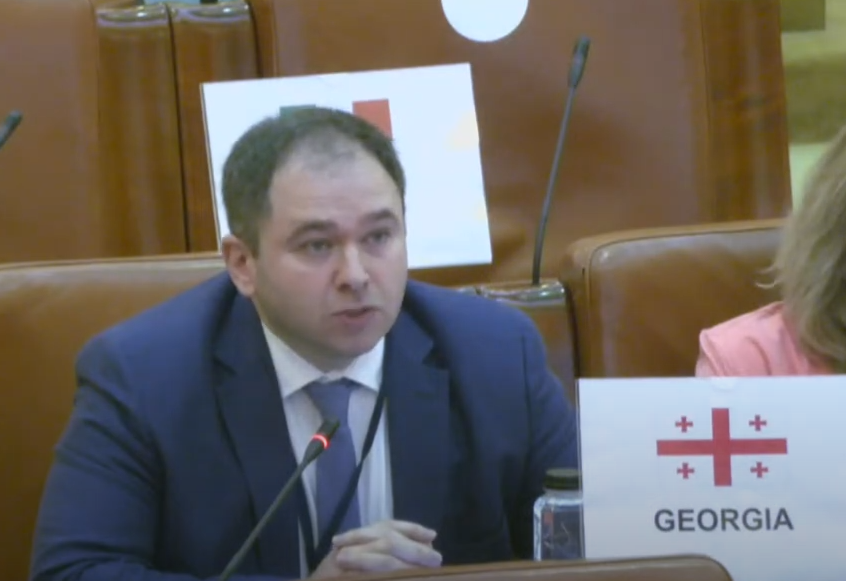Nikoloz Samkharadze, Chairman of the Parliamentary Foreign Affairs Committee and Head of the Georgian Delegation to the OSCE Parliamentary Assembly, said that over the past 16 years, “we have not achieved any progress” in the Geneva International Discussions (GID), the talks aimed at addressing the aftermath of the 2008 Russia-Georgia war, such as the implementation of the ceasefire agreement, and the return of IDPs and refugees to their homes.
“And I question here what international organizations are doing in order to solve the conflict, and then the result is that Russia gets encouraged, and then they attack another neighboring country, Ukraine. They might attack another one in the future. So we have to pay attention to these malign activities of Russians right from the beginning and not when the occupation is already there,” Samkharadze warned during his address to the General Committee on Political Affairs and Security at the 31st Annual Session of the OSCE Parliamentary Assembly in Bucharest, Romania.
He also called out “many countries in this room” for not using the term “occupation” in relation to the occupied regions of Abkhazia and Tskhinvali.
Samkharadze noted that occupation has a daily impact on the Georgian population. He highlighted several issues, including kidnappings, denial of Georgian children’s right to be educated in their native language in occupied territories, erasure of Georgian cultural traces, and the occupation preventing approximately 8% of Georgia’s population from returning to their homes in these territories.
The Geneva International Discussions/GID was established on the basis of the ceasefire agreement of August 12, 2008, brokered by the European Union. GID is co-chaired by representatives of OSCE, EU, and UN and involves participants from Georgia, Russia, and the U.S., as well as members of both the exiled Georgian administrations of Abkhazia and Tskhinvali Region/South Ossetia and the two regions’ Russian-backed authorities, in their personal capacities. Sessions are held in two working groups, with the first group discussing peace and security matters, and the second – humanitarian concerns. The main issues discussed at the GID are the implementation of the ceasefire agreement, the safe and dignified return of internally displaced persons and refugees to their homes, and the security and humanitarian problems created as a result of the Russian occupation.
Read also:
- 27/06/2024 – 61st Round of Geneva International Discussions
